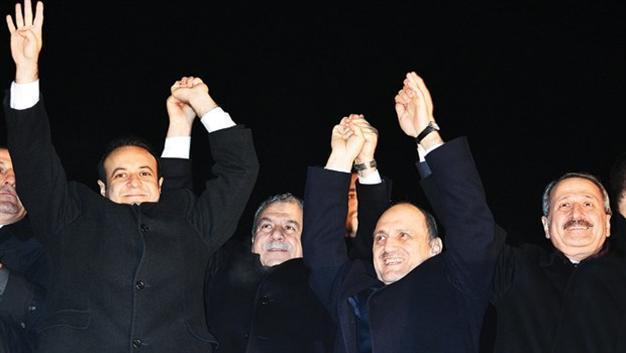Turkish court issues media ban on inquiry into corruption
ANKARA

Despite the ban on reporting on the corruption panel, the media is not banned from reporting on the ban.
Turkey’s media organizations have been unprecedentedly banned from reporting about a parliamentary inquiry into corruption allegations concerning four former ministers of Cabinet.The ban announced late on Nov. 25 upon an Ankara court decision comes just a day before former Environment and Urban Planning Erdoğan Bayraktar was expected to present his defense to the investigation commission. Former EU Minister Egemen Bağış, meanwhile, is expected to present his defense on Nov. 27.
In addition to the internal regulations of Parliament, the Parliament Speaker’s Office cited related articles of the Constitution and the Code on Criminal Procedure (CMK) in its correspondence with the Chief Prosecutor’s Office, arguing that certain media reports had “violated the confidentiality of the investigation and harmed the principle of presumption of innocence,” while appealing for the media ban for the sake of the “healthy conduct of the investigation,” the state-run Anadolu Agency reported.
In its affirmative response to the appeal, the prosecutor mentioned the need for “preventing harm to personal rights and protecting the reputation and other rights of former ministers” who are subject to investigation.
Parliament had decided to establish an investigation commission to probe former ministers Bayraktar, Bağış, Zafer Çağlayan and Muammer Güler on May 5, after deliberations between political parties.
The four ministers resigned from Cabinet after a huge graft operation highlighted their relations with Iranian-origin businessman Reza Zarrab, who allegedly paid them a number of bribes over the last few years. Along with Zarrab, former Halkbank chief executive Süleyman Aslan is among the suspects of the corruption probe.
The court decision prompted fury on the part of several media organizations, who vowed not to abide by the gag order. Citing laws guaranteeing press freedom, daily Evrensel said in an open letter that it "we will not submit to this law but will continue to publish news about this issue."
"This decision nakedly violates both the legal articles and the law," daily Cumhuriyet said in a press release.
"May Cumhuriyet readers have no cause for worry; this decision is invalid for us both legally and in terms of journalistic ethics and responsibilities," it said, vowing to continue publishing news from the commission.
Internet portal T24 also promised to publish as much news from the comission as it can gather.
Daily BirGün, as well as Internet news portals soL and İleri Haber, also mocked the ban, assuring readers that they would continue to publish news from the corruption commission.
The Nov. 25 decision by the prosecutor’s office is not the first time that Turkish media has been banned from reporting on a certain issue.
In June, a publication ban was imposed on news of the abduction of dozens of Turkish citizens, including diplomats, in Mosul by militants of the Islamic State of Iraq and the Levant (ISIL).
In February, a ban was imposed on the publication of reports relating to a search of two trucks -allegedly containing weapons belonging to Turkey’s National Intelligence Organization (MİT)– that were bound for Syria. Coverage of the deadly attack in the town of Reyhanlı on May 11, 2013, which left 53 dead, was also banned by a court order.
















